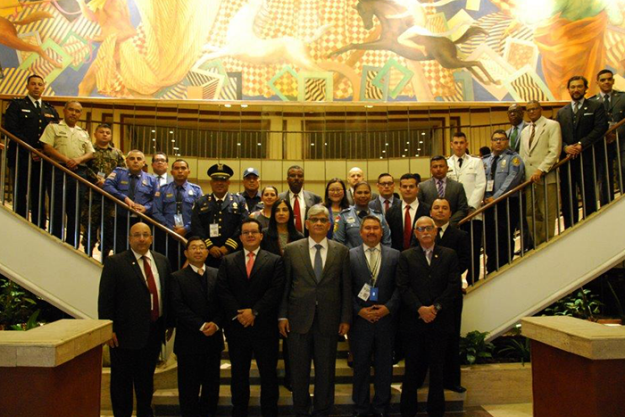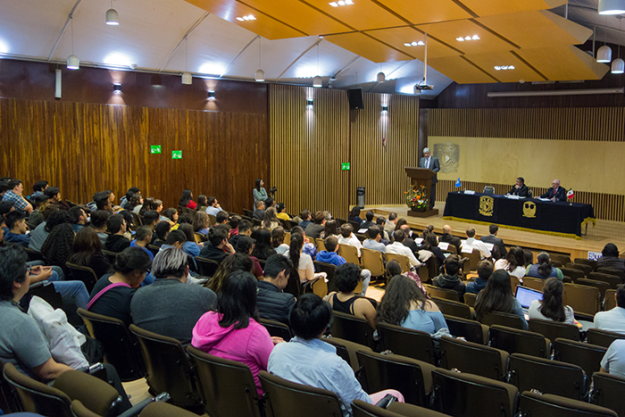
The Deputy Director-General of the Organisation for the Prohibition of Chemical Weapons (OPCW), Mr Hamid Ali Rao, during his official visit to Mexico
THE HAGUE, Netherlands — 8 November 2017 — The Deputy Director-General of the Organisation for the Prohibition of Chemical Weapons (OPCW), Mr Hamid Ali Rao, underlined the need for robust preparedness against chemical emergencies and the importance of peaceful uses of chemistry during his official visit to Mexico on 6 November.
While opening the Table Top Exercise on Chemical Emergency Response for the States Parties from Latin America and the Caribbean, which was hosted by Mexico’s National Authority, the Deputy Director-General focused on the threat of chemical terrorism. Reflecting on the globalised nature of the world and its ever-increasing free movement of people, he observed that “the danger of non-State actors acquiring toxic chemicals is a problem for all”. The Deputy Director-General emphasised the crucial role the OPCW plays in facilitating the strengthening of state capabilities in responding to chemical attacks or emergencies and creating “a more robust basis for ensuring assistance and protection”.

Deputy Director-General of the OPCW Mr Hamid Ali Rao delivers a lecture at the Faculty of Chemistry at the National Autonomous University of Mexico.
The Deputy Director-General also delivered a lecture titled, “OPCW: Ensuring Chemistry is Used Exclusively for the Benefit of Humankind”, at the Faculty of Chemistry at the National Autonomous University of Mexico (UNAM). He pointed to the revolutionary nature of the study of science and how it is “changing the way we think and behave”. He described how science underpins the OPCW’s work, which is powerfully geared towards promoting the application of chemistry solely for peaceful purposes. The endeavour to eliminate chemical weapons and promote a culture of peaceful chemistry is a collective mission. “The real guardians against chemical weapons are you – the current and future chemists, chemical engineers, and researchers,” stressed the Deputy Director-General.
During his visit to Mexico, the Deputy Director-General met with the Secretary General of the Agency for the Prohibition of Nuclear Weapons in Latin America and the Caribbean (OPANAL), Ambassador Luiz Filipe de Macedo Soares; the Director at the Centre of Investigation and National Security (CISEN), Mr Jose Juan Gutiérrez, the Head of the National Authority for CWC, Dr Eduardo Vázquez Rossainz.
Background
Mexico signed the CWC in 1993 and became a party to the Convention in 1997. Mexico has been an active supporter of the Convention and OPCW’s activities throughout the years.
As the implementing body for the Chemical Weapons Convention, the OPCW oversees the global endeavour to permanently eliminate chemical weapons. Since the Convention’s entry into force in 1997 – with its 192 States Parties – it is the most successful disarmament treaty eliminating an entire class of weapons of mass destruction.
Over 96 per cent of all chemical weapon stockpiles declared by possessor States have been destroyed under OPCW verification. For its extensive efforts in eliminating chemical weapons, the OPCW received the 2013 Nobel Prize for Peace.
More Information
- Regional Table Top Exercise on Chemical Emergency Response for GRULAC States Parties Remarks by the Deputy Director-General Mexico City, Mexico, 6 November 2017
- Ensuring Chemistry is Used Exclusively for the Benefit of Humankind Remarks by the Deputy Director-General Universidad Nacional Autonoma de Mexico, Mexico , 6 November 2017
- OPCW Fact Sheets
